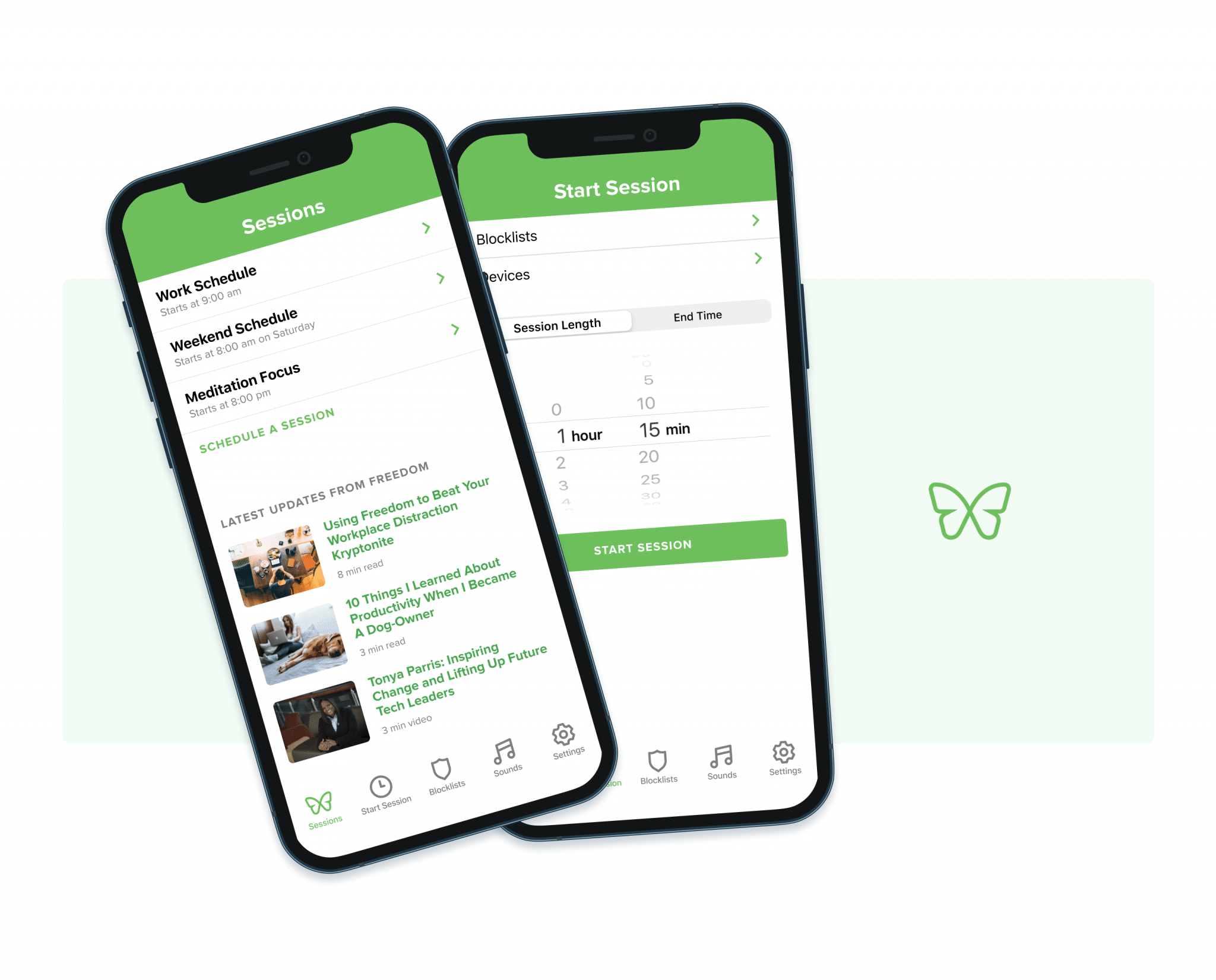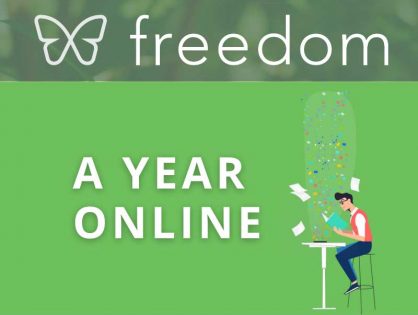Krista Tippett: On Productivity and Protecting Space for Deep Thinking and Reflection

In celebration and recognition of Women’s History Month, we wanted to spotlight some of the tremendously talented women within the Freedom community who are using their freedom and time to shape the world each and every day.
Meet Krista Tippett.
Krista is a Peabody Award-winning broadcaster, National Humanities Medalist, and New York Times bestselling author. She founded and leads The On Being Project, hosts the globally esteemed On Being public radio show and podcast, and curates the Civil Conversations Project, an emergent approach to conversation and relationship across the differences of our age. In 2014, President Obama awarded Krista the National Humanities Medal at the White House for “thoughtfully delving into the mysteries of human existence. On the air and in print, Ms. Tippett avoids easy answers, embracing complexity and inviting people of every background to join her conversation about faith, ethics, and moral wisdom.”
Krista grew up in a small town in Oklahoma, attended Brown University, became a journalist and diplomat in Cold War Berlin, and later received a Masters of Divinity from Yale University. Her books include Becoming Wise: An Inquiry into the Mystery and Art of Living, and Einstein’s God: Conversations about Science and the Human Spirit.
With such a wealth of experience and a list of accomplishments to match, we figured we’d step aside and let her tell you how she manages to find the time and focus to do it all.
As someone who has worn many hats – author, producer, podcast host, and journalist – how did you break into your field and what started it all for you?
Right out of college I was a New York Times stringer in divided Berlin, and then did a stint as a political appointee with the State Department there. I was focused on high policy, and the arms race of that time, but started to be more curious about how people created lives of dignity and meaning within and despite political/economic conditions. This led me eventually to go for a theological education – Yale Divinity School – which sent me back into the world with the eyes of a journalist and the questions of a theologian. I saw that this entire part of life where we pursue religion, spiritual life, moral imagination is under-investigated. And though these are questions and pursuits that are deeply important, our public ways of discussing them are trivialized and traumatized. I had never done radio before – and podcasting hadn’t yet been invented. But it was my passion to step into this black hole where my longing for a better public vocabulary led me to radio as a medium and now podcasting as a new media wild west.
As a writer and broadcaster, how do you stay productive, motivated, and focused on the things that matter most to you?
Our project is mission-soaked, and we grow by listening to our listeners and the culture – to humanity in all its hazard and its beauty. This is endlessly motivating and deepening.
What excites you most about your field?
Several fields converge in my work, which now takes place at the intersection of media and public life. The renewal and recreation of common life – as something much bigger than politics – is one of the great callings of this century, and it is unfolding across generational time (rather than news-cycle or election-cycle time). Our media work nourishes that. And we are taking the power of a media platform seriously to shine a light on and resource what I call the generative possibilities of this moment we inhabit. People and projects creating the new forms and the world we want our children – all of our children – to inhabit. What could be more exciting than that?
When are you most/least productive, and how does this shape your daily working routine?
I am most productive when I build out and protect space for deep thinking and reflection as a counterpoint to my high-energy, high-performance schedule. This allows me to be doing the deep thinking, reflection, and writing that are as important to my well-being and my work in the world as the deadline-driven production that is also part of it. In this sense of productivity, I am least productive when I am completely on top of email and Twitter, which means being reactive and living with chopped up time and attention all day long.
This allows me to be doing the deep thinking, reflection, and writing that are as important to my well-being and my work in the world as the deadline-driven production that is also part of it.
At what point did you realize that your relationship with technology was something that needed to be examined, monitored, and even actively sculpted?
I took my media project into independent production and built a new organization in the last four years – creating a new kind of public life/media enterprise in the process. This was exhilarating and exhausting, like every startup experience. Plus I was traveling to speak and writing books, etc. At some point two years ago I realized that I was living on the edge of exhaustion too much of the time – working myself right up to the brink of collapse over and over again. I took my first two-week, digital-free vacation in ten years and it was cleansing and renewing in a way that shocked me. I spent the next nine months in my organization preparing to turn the following – last summer – into a sabbatical. I went completely offline and off video – off work email entirely, social media. I rediscovered pleasurable solitude and got a full mind body spirit recharge. When I came back, I realized very quickly that I was going to need some tools not merely to reframe my working schedule but to reset my life with technology to keep the level of well-being and deep-thinking capacity I’d recovered. That’s when I discovered Freedom. I have gifted it to all of my colleagues so we can all be on this journey together and let that inform the working culture and human space we are creating together.
I took my first two-week, digital-free vacation in ten years and it was cleansing and renewing in a way that shocked me
What resources or tools do you use daily and have found most beneficial to your productivity and/or writing and working process?
I use Freedom to turn off email and Twitter at the end of the working day, and it does not turn on again until at least an hour after my waking time. That gives me clear space for reading/meditation/my first cup of tea and unhurried preparation for the working day. I’m grounded when I finally do open up email. I also use Freedom for shorter spaces – say, to protect an afternoon’s writing/thinking time.
What project are you currently most excited about?
We’ve just launched The On Being Project as a frame for our next chapter, and it includes the next stage Civil Conversations Project, which we began in 2011. Our Better Conversations Guide is making its way into an amazing array of institutions and communities. I speak and travel with my book Becoming Wise: An Inquiry into the Mystery and Art of Living. And I’m at work on a new book, Letters to a Young Citizen.
What do you do outside of your work routine that helps you stay productive?
Hot yoga and kettlebells keep me in my body. My children and friendships sustain and delight me. Walking in my funky old-fashioned nature-friendly Minnesota neighbourhood in all weather is a joy. And I love my sleep and my books.
Where are you currently based?
Minneapolis, with partners, colleagues and audience/community across the U.S. and around the world.
To learn more about Krista, her books, podcast, and work visit OnBeing.org


